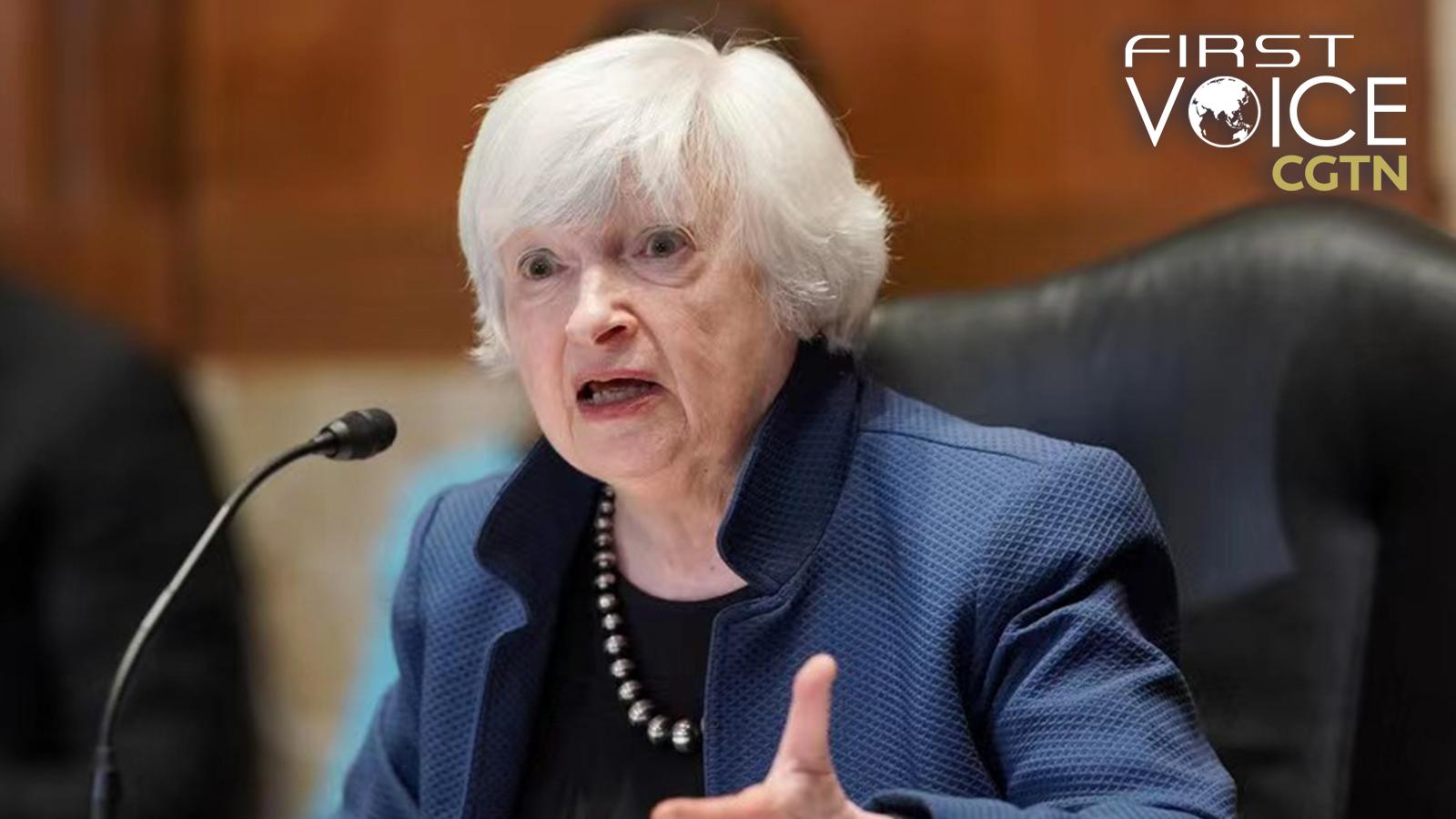
U.S. Treasury Secretary Janet Yellen [Photo/Xinhua]
Editor's note: CGTN's First Voice provides instant commentary on breaking stories. The column clarifies emerging issues and better defines the news agenda, offering a Chinese perspective on the latest global events.
Within a month after U.S. Secretary of State Antony Blinken concluded his Beijing visit, U.S. Treasury Secretary Janet Yellen is heading to China for a four-day visit starting from Thursday. At a time when the world's two largest economies are locked in festering skepticism over economic, military and security issues, the international community is anticipating Yellen's first China trip as U.S. treasury chief to ease tensions and recalibrate ties between China and the United States.
Yellen's Beijing journey is widely seen as a positive sign for China-U.S. relations. When Washington strikes a confrontational and hostile posture against Beijing, Yellen has repeatedly called for "healthy" and "fair" ties with China. "We do not seek to 'decouple' our economy from China's. A full separation of our economies would be disastrous for both countries," Yellen said at Johns Hopkins University in April, stressing the importance of communications between the two economic powers.
"Yellen can anticipate a warm welcome in Beijing, where she is regarded as supportive of constructive ties at a time when the political mood in Washington is resolutely hostile to China," the Washington Post said in an opinion article.
The importance of communication between the world's two largest economies cannot be overemphasized. However, as David Loevinger, a managing director in the Emerging Markets Group of TCW who helped coordinate U.S.-China economic talks for the Barack Obama administration, pointed out in a Bloomberg article, "It's shocking how little the U.S. and Chinese governments speak at all levels." Loevinger pointed to the fact that "key economic officials in both countries don't know each other."
Since the summit between Chinese President Xi Jinping and his U.S. counterpart Joe Biden in Bali last November, the two countries have been trading harsh rhetoric and acts on the economy. Washington has unveiled a slew of export controls banning Chinese firms from buying advanced chips without a license and persuaded allies to join. In June, the Netherlands, under U.S. pressure, announced new export restrictions to cut China off from key chipmaking tools. As a response, Beijing hit back by imposing export controls on gallium and germanium – two strategic raw materials crucial in the global chipmaking supply chain.
Against this backdrop, efforts to restart dialogues including Blinken's and Yellen's Beijing visits, are essential. During her four-day stay in China, Yellen, according to Post, is expected to have multiple meetings with high-level Chinese officials, part of joint efforts by the two countries to halt a worsening of ties. Technology and trade controls, business environment, currency, and global debt are believed to be on top of the agenda during Yellen's trip, according to The New York Times.
"The U.S. government is clearly trying to put some floor under the deterioration of the economic relationship," and a Yellen trip could "restart a steady pattern of engagement at lower levels," Edward Alden, a senior fellow at the Council on Foreign Relations told AFP.
Stephen Olson, a senior research fellow at the Hinrich Foundation and a former trade negotiator with the Office of the U.S. Trade Representative, believes Yellen's discussions with Chinese officials would be "positive and in the best interests of both the U.S. and China." "Between now and then, every effort will be made to keep the waters calm. This is the primary short-term objective of the resumption of dialogue [between leaders of the two countries]," South China Morning Post quoted Olson as saying.
Yellen's trip and China's welcoming gesture show both Beijing and Washington are willing to prevent ties from deteriorating. As two economic powers, China and the U.S. have the responsibility to put divergences under control and join hands to cooperate for the common good of the world. A thaw in China-U.S. ties matters not only for the two countries but also for the recovery of the global economy.

 中文
中文



